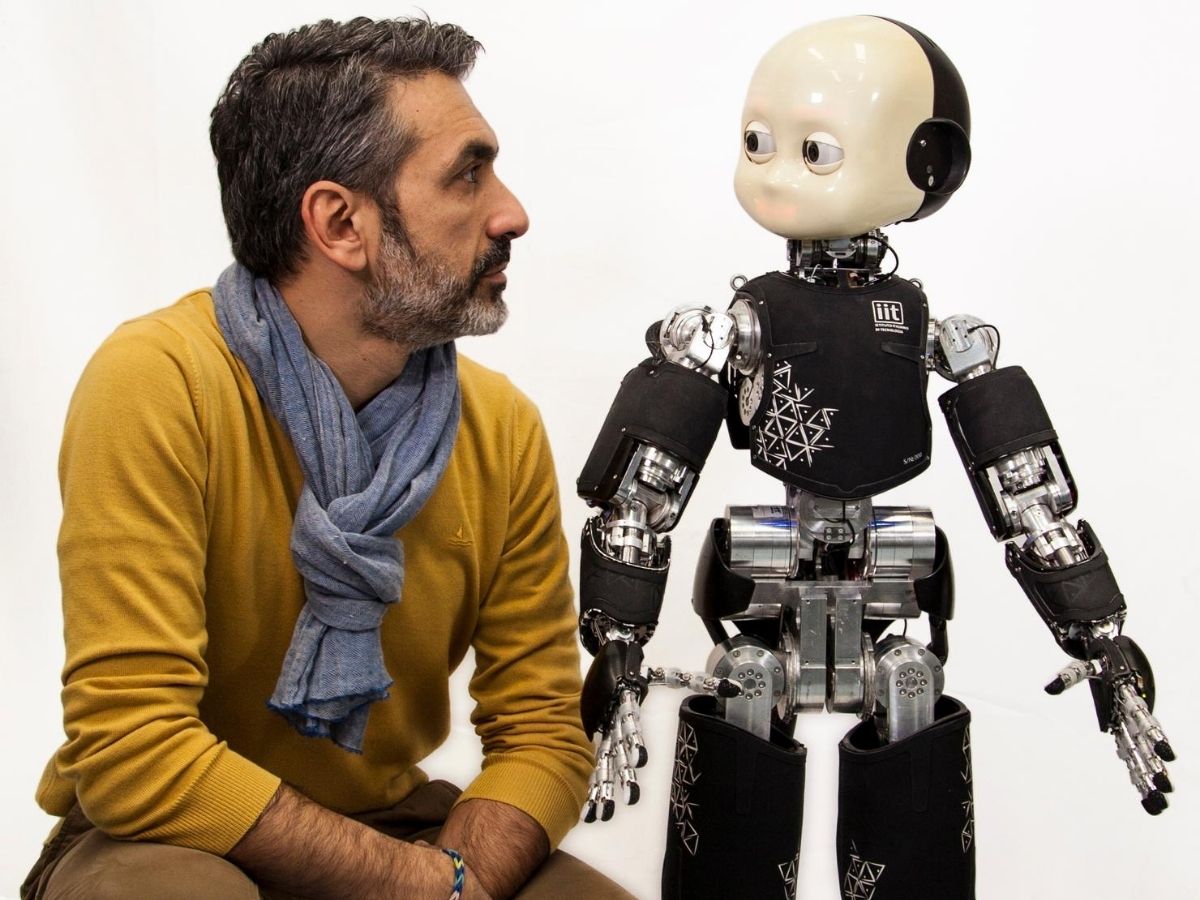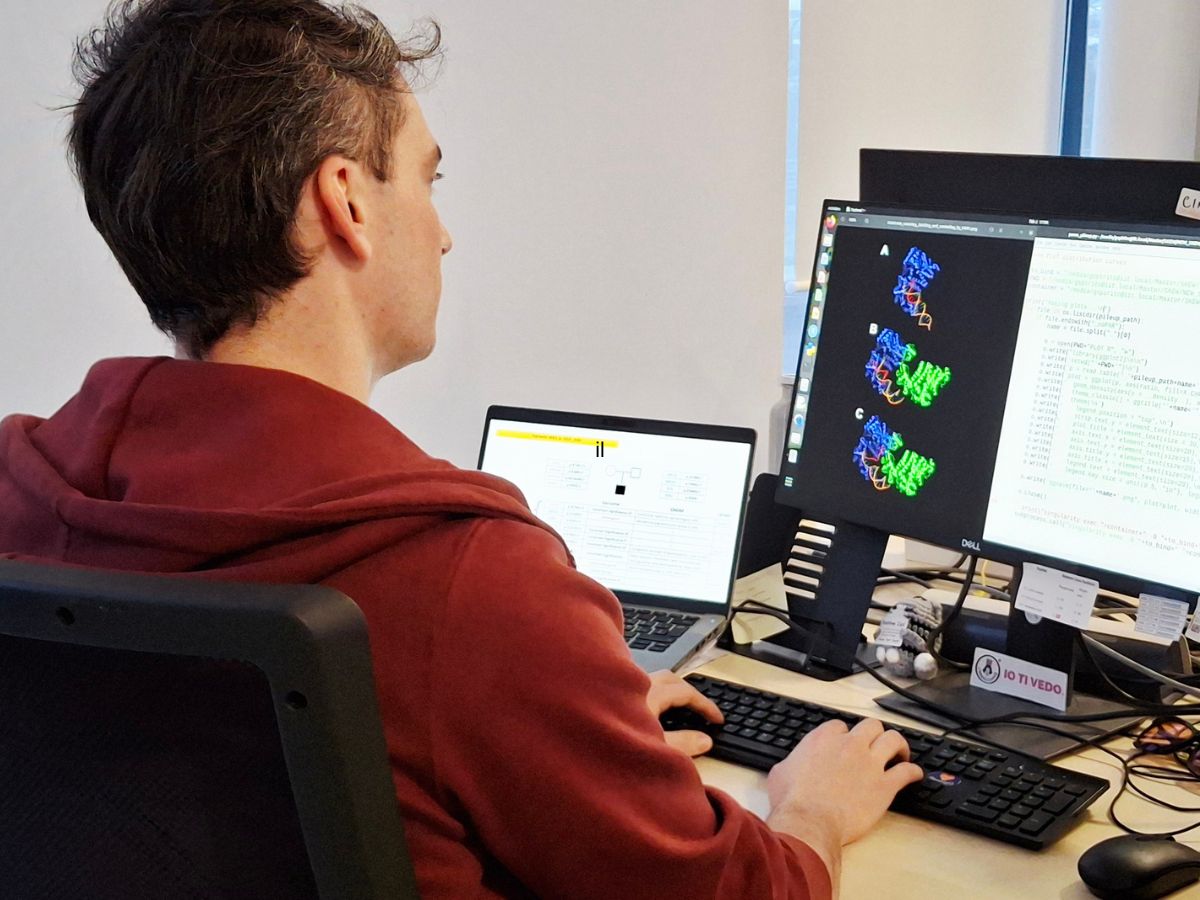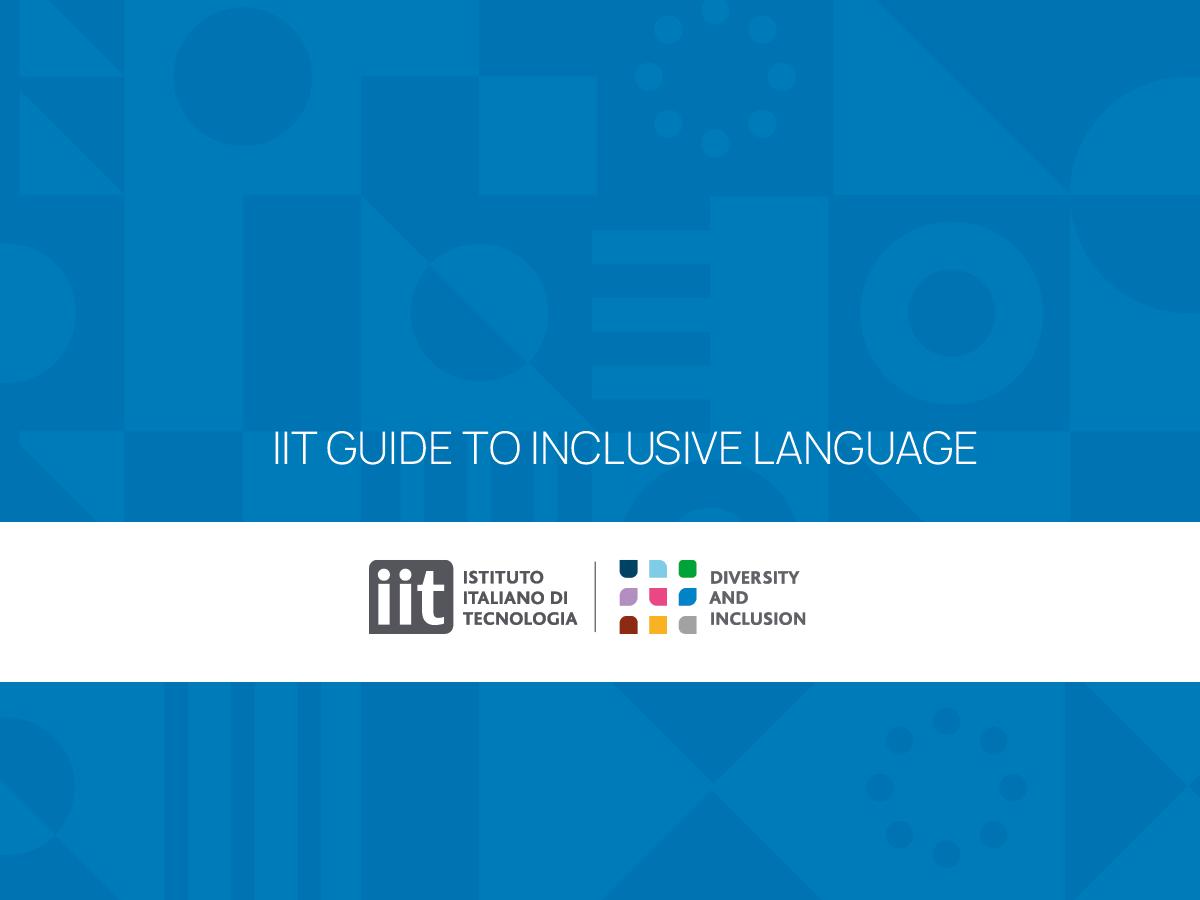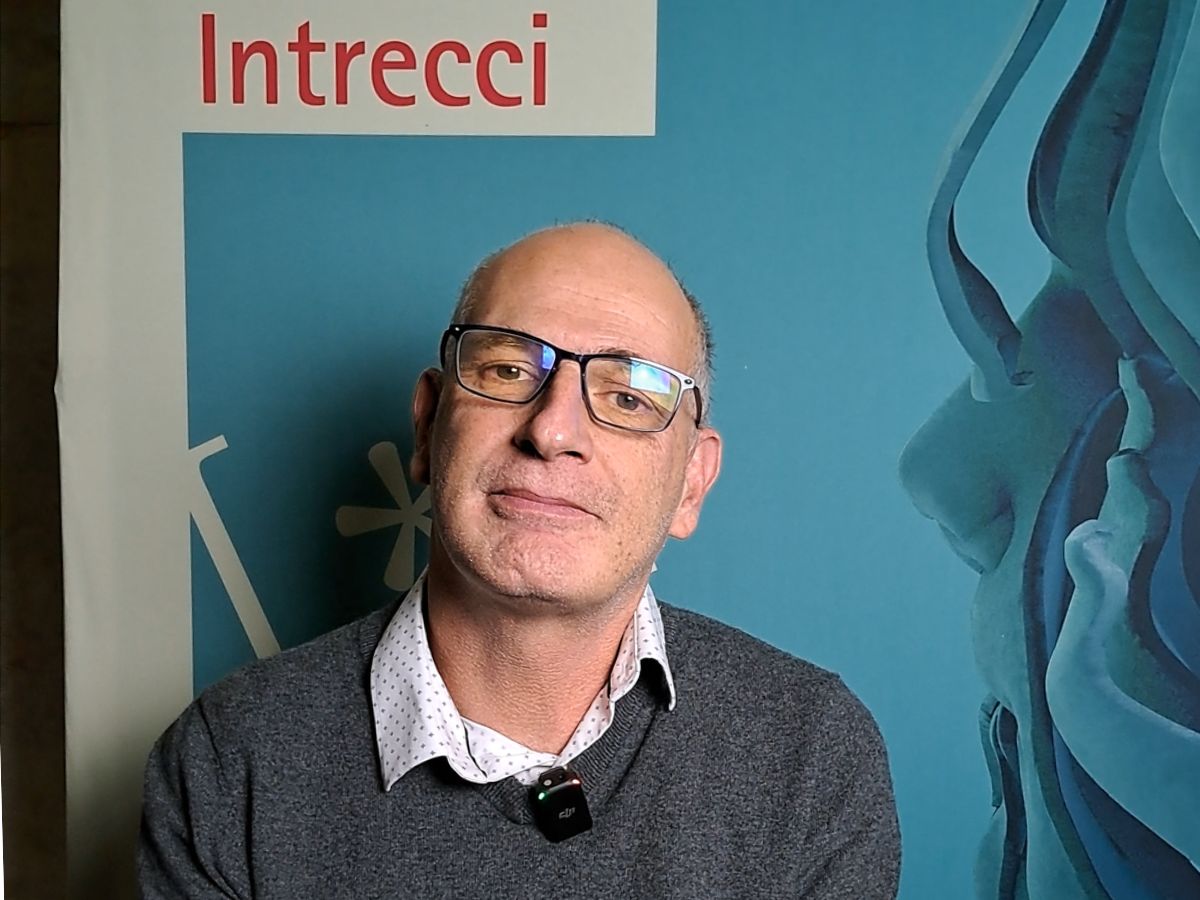Interview with Giorgio Metta, IIT’s Scientific Director, member of the group of experts selected by MiSE to draft a national AI strategy
About two months after the Ministry of Economic Development (MiSE) published the proposals for the “Italian Strategy for Artificial Intelligence,” Giorgio Metta – IIT’s Scientific Director and member of the pool of experts selected by MiSE to draft the document – talks about its foundations, context and aims. The strategy, available on the Ministry’s website, represents one of the points at the heart of the action taken by Minister Patuanelli to foster business innovation and competitiveness, enhancing Italy’s position in the field of digital transformation with particular attention to employment, social and environmental aspects.
Why is there a need for an AI strategy in Italy?
Artificial Intelligence or AI, and the technologies associated with it, have already changed the way in which we live. Worldwide, development in this field is led principally by the United States and China, despite the fact that in Europe (and in Italy) there is extensive expertise in this field as regards both public research and the private sector. The strategy that we have prepared with a pool of experts is indispensable, especially if it subsequently gives rise to a concrete investment plan as we have suggested, in preparation for the socio-economic changes that will arrive. It is necessary to solicit the technological and educational ecosystem, both public and private, and to prepare an appropriate ethical and regulatory framework so that we can play an active part in this ongoing revolution and be able to compete with other players at a European and global level. Italy, in its European context, can bring a new vision of this approach to technology, combining human needs with those of the economy.
The strategy refers to AI “for good,” what exactly does this refer to?
Among the concepts developed in the strategy, which is certainly aimed at making our country more competitive, I think it is important to mention that AI can play a very important role in improving everyone’s well-being by minimising risks to people and social cohesion. AI for good is an anthropocentric view of this technology, focusing on people and their needs. At IIT we have always shared this approach to new technology developed according to the needs of individuals and aimed at improving lifestyles while minimising the effects on society and the environment.
What are the foundations of this strategy?
The strategy is based on three fundamental pillars: AI for human beings, which defines the relationship between humans and machines; AI for a reliable, productive and sustainable digital ecosystem, which addresses industrial policies and the technological ecosystem associated with AI; and AI for sustainable development, which encompasses actions aimed at achieving the UN SDGs. These elements together form the vision of what we have called RenAIssance, the renewal that can be enacted by means of Artificial Intelligence. The implications resonate at the regulatory level, but also require reflection on ethics and a paradigmatic shift in the Government’s public policy. It is a unique opportunity for our country and the whole continent at a very unusual time in history, potentially difficult to decipher.
What can AI do for sustainability?
AI can concretely help the country to pursue the sustainability goals of the 2030 Agenda. It can create value without leaving anyone behind, positively impacting society. Think, for example, of optimised industrial processes to save resources and meet the growing demand for food, but also of the optimisation of energy acquisition, storage and management technologies; with AI it would be possible, for example, to improve the efficiency of smart grids by means of sensor management and the processing of the respective data acquired. Furthermore, the technological ecosystem around AI can speed up the development and optimisation of enabling technologies to improve the quality of life of people with disabilities.
For all this to truly impact our society, a governmental investment plan needs to be developed with the objective of achieving the 2030 goals. IIT’s research pays great attention to this aspect, and our activities are structured in such a way as to steer the development of new technology towards sustainability, beginning with the creation of environmentally-friendly materials, right through to AI-enabled robots that can help differently-abled people, and including new green technologies for collecting and storing renewable energy.
The report states that AI is closely linked to the human component and that people skills will have to be complementary to those of artificial intelligence. How can the country’s education system be adapted to achieve this goal?
The education system will have to change, and there are many proposals for this sector in the strategy. Educational activities, starting from primary schools, will have to include specific coding programmes, something that rarely happens today and is currently left to sporadic teacher initiatives.
We have also proposed training for teaching staff, and at university level in PhD courses, all the way to the concept of lifelong learning, but also working at the level of workers and society as a whole, in order to facilitate staff re-skilling and minimise the social and employment changes that these types of technology will introduce.
What are the issues related to the awareness and dissemination of AI within civil society?
Communication is one of the key issues in our proposal. We often talk about the negative aspects that this kind of technology can have on our society: job losses, fake news, erroneous decisions and crimes of various kinds against citizens. Obviously, AI, like any technology, brings potential risks, but also enormous benefits, and in order to use it to best advantage, we as a society need to master the subject and have a perception of the risks and advantages, as well as comprehensive information that is as close to the facts as possible. We don’t all have to become AI technicians, but we have to understand its implications for our lives.
The strategy suggests several actions to achieve this, communicating at all levels, from industrial producers to policy makers, from the service sector to society as a whole. One of the concrete initiatives proposed is the establishment of an “AI festival,” a touring event at a national scale dedicated to all, with the aim of informing citizens and encouraging them to find out more about the AI ecosystem.
How is the issue of work addressed?
In the document, we propose four concrete actions to address the issue of employment: the design of territorial ecosystems with a focus on infrastructure, which is fundamental for the functioning of new forms of technology; expertise mapping in companies with consequent high-level customised training; the creation of national or international strategies to form a system and be able to attract funding and be present in European discussions; and finally, to encourage the adoption of smart contracts with fair and transparent conditions for workers, a method of personnel management that could, with the help of AI, offer more forms of contractual guarantees on different levels.
How can this national AI ecosystem be encouraged?
The national AI ecosystem is quite extensive in Italy and includes several public and private research units, as well as recently-funded, highly specialised competence centres, Digital Innovation Hubs and technopoles. In this ecosystem, innovation starts with the research centres, and in our paper we recommend greater investment in this area, so that the new skills needed for the country’s process of innovation can be created. A pivotal role will also be played by the development of public-private relations so that the innovation generated by research can become part of reality, in a transition from laboratories to companies. All this, however, will only be possible by becoming competitive and attractive at both national and international scale, with investments aimed at maximising resources and creating or enhancing infrastructure, so as to attract the best talent to our country, whether Italian or from abroad.
We need infrastructure and talent. Infrastructure includes networks, but also high-performance computing capacity, a research centre with sufficient critical mass and adequate laboratories to attract talent – not only Italians – and, finally, a serious investment in people. Having done this, Italy should reinforce the transition from development to the adoption of AI by bringing exceptional research skills closer to companies. We need to understand the needs of the world of production and develop AI – more generally, everything related to complementary technology – for various verticals: from manufacturing to public administration, services as well as the cultural heritage sector.
The report recommends the creation of an Italian Institute for AI. What is this? What benefits would it bring to the country?
The foundation of the Istituto Italiano per l’IA (Italian Institute for Artificial Intelligence, IIIA) is an essential part of this strategy. However, it must be flanked by other initiatives such as the establishment of an inter-ministerial steering committee that can, in many respects, guide the country’s digital transformation and the creation of a national governance for science and technology so that decisions regarding the technology itself are guided by a data-driven approach (so-called evidence-based decision-making) and by experts from academia and industry. In this context, the Italian Institute for AI would be the tool that could provide sufficient critical mass to be able to compete on the international scene. The proposal regards the constitution of an institute that can perform high-level research and effectively transfer the products of research to the market – similar to what IIT already does according to its statutory mission – focusing exclusively on the technological ecosystem revolving around AI. It could be an attractive hub for the whole world, and it could cooperate, following the finest international structures, with the national and European network of institutions and public and private organisations. The idea is that this new institute, which could employ around 1,300 staff, would have around 30% of its budget covered by external funding, since it is oriented towards applied research, and the remainder covered by the state. This approach, which has already been adopted by IIT, allows research to remain independent, while still having an impact on the national economic system in the short to medium term. To provide a benchmark, an institute of this size would have the same capacity as analogous ventures by major global players, such as Google Deep Mind.
Will our country be able to implement the recommendations of this pool of experts and deploy the strategy?
The successful implementation of this strategy will depend on many factors. First of all, we have to consider that at the present time, the strategy is only “on paper” and it will be necessary to create the appropriate funding programme. The important decision that we hope the Government will take is in fact to equip the country with plans of this sort, and then implement them with central coordination so that resources are not dispersed across too many disjointed strands.
I repeat, achieving critical mass in everything concerning AI is essential.
If this can be achieved, and if the new infrastructures suggested are put into place, I believe that Italy could truly become a player in the field of AI, not only at a European level, a context in which the various states are working together, but also at a global level. As Scientific Director of the Italian Institute of Technology, in addition to having been part of the pool of experts in the past, I will be able to contribute with the specific expertise of our researchers and knowledge of the AI development model, relying on the international and wide-ranging vision on the subject that IIT has built up over the years, in part due to the creation of projects such as iCub, which to date is the most widespread platform in the world for the study of AI applied to humanoid robotics.





